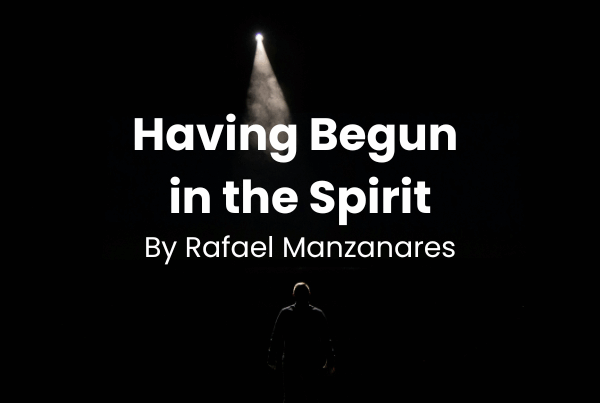
“I, therefore, the prisoner of the Lord, beseech you to walk worthy of the calling with which you were called, with all lowliness and gentleness, with longsuffering, bearing with one another in love, endeavoring to keep the unity of the Spirit in the bond of peace. There is one body and one Spirit, just as you were called in one hope of your calling; one Lord, one faith, one baptism; one God and Father of all, who is above all, and through all, and in you all” (Ephesians 4:1-6).
Unity is a wonderful thing.
Whenever I am with others and feel an affinity with them, knowing that we are on the same team, wanting the same things, sharing similar experiences, opinions and history, it is incredibly comfortable and reassuring. By the same token, whenever something happens that breaks that sense of unity, it is very painful and disconcerting. At the church where I serve as pastor, I feel a great sense of unity. We are all very different people, but we are united by the fact that we all like me as a pastor. (Just kidding… sort of.) But if someone leaves our church, really for any reason, our relationship changes to a degree, and we feel that the unity we once shared has been disrupted. It can be painful. But unity is easy and natural as long as we are sharing a common context.
In the above Scripture from Ephesians 4, Paul exhorts the Christians to “endeavor to keep the unity of the Spirit.” The word translated “endeavor” is a Greek word that means, “to chase after” or “to work hard for.” The Greek word that is translated “keep” literally means “to guard.”
What Paul is essentially saying is, “You need to work really hard at protecting unity.” Unity isn’t just something to be experienced and enjoyed when it comes, but it is something to work hard at, to chase after and to protect.
All too often our unity comes by the process of elimination.
If I can just get rid of everyone with whom I disagree, then I will finally experience unity. But that isn’t really unity at all, at least not the kind of unity Paul is talking about. Feeling connected to people just like you doesn’t require any work at all. It is just a mutual admiration society that feeds our pride and narcissism.
All my life I have loved the Los Angeles Dodgers. When I go to a Dodger game, I feel a great affinity toward everyone there who is wearing Dodger blue and eating Dodger dogs. Every time Clayton Kershaw gets another strikeout I am high-fiving total strangers and enjoying our unity. But I was recently at a spring training game between the Dodgers and the Giants in Arizona, and our seats happened to be in the middle of a bunch of Giants fans. I happen to hate the Giants, but I had a choice to make. I could spend the whole game yelling loud insults at the Giants fans, and getting doused with beer, or I could find a common ground with some of the people around me and enjoy the fact that we both love our teams and our great tradition of rivalry. It was really an enjoyable experience, ultimately, to actually befriend several Giants fans around me and to enjoy a beautiful day at the ballpark. Some of them even turned out to be Christians, which I really didn’t think was possible. It took work, but we found unity in our common love of a great sport.
Every year I attend several pastor’s conferences with other pastors with whom I share a common history, common doctrinal distinctives, a common style of ministry, and similar cultural perspectives. It doesn’t take much work to find great basis for unity when I am with members of my own tribe. But I recently went to a pastor’s prayer event that included pastors from various different denominations, backgrounds and culture. Frankly, some of it was a bit uncomfortable for me, and I heard people say, and even pray, things that did not resonate with me. My temptation was to judge people for their differences and peculiarities, and pick them apart for not being just like me. But God really dealt with me as the meeting unfolded, and I sensed a really special unity because we were all honoring our one Lord, as we celebrated the fact that Jesus Christ, the Son of God, died for our sins and rose again. In a strange way, the unity I felt with this assortment of pastors felt more significant than the unity I feel with those who agree with me on almost everything.
I had to work at it, and that actually made it more special.
The unity that comes from shared distinctives is natural and enjoyable. But it is also effortless and perhaps even lazy. We should all be asking ourselves, “What am I doing to chase after, work toward and guard the unity that I should be having with others with whom my main connection is simply our one Lord?”






